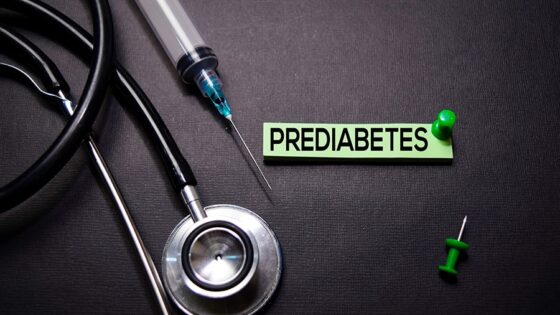
More than 84 million Americans have prediabetes, and most of them don’t even know it. Prediabetes is a serious health condition that can lead to type 2 diabetes, heart disease, stroke, and other serious health problems. But there is good news: prediabetes can be reversed! In this article, we will discuss what prediabetes is, the risks associated with it, and how to get your health back on track.
What is Prediabetes?
First, let’s talk about what prediabetes is. Your blood sugar levels are measured by a test called hemoglobin A1C (or HbA1c for short). In people without prediabetes, the HbA1c level is below 5.7%. With prediabetes, the level is between 5.7% and 6.4%. Those with diabetes have an HbA1c level above 6.5%.
While prediabetes can lead to type 2 diabetes, it doesn’t always happen right away or at all. However, it’s important to take action because having prediabetes puts you at a higher risk for other health problems like heart disease and stroke.
What is Type 2 Diabetes?
Type 2 diabetes is a chronic condition that occurs when the pancreas does not produce enough insulin or the body is unable to effectively use the insulin it produces. Insulin is a hormone that helps regulate blood sugar levels. When blood sugar levels are too high, it can lead to serious health problems, including heart disease, stroke, and kidney disease. Type 2 diabetes most often develops in adulthood, but it is also becoming more common in children and adolescents due to the rise in obesity rates. There is no cure for type 2 diabetes, but it can be managed through lifestyle changes, such as eating a healthy diet and maintaining a healthy weight. In some cases, medication may also be necessary.
Risk Factors
Lifestyle choices play a significant role in the development of prediabetes. People who are overweight or obese are more likely to develop the condition, as excess fat interferes with the body’s ability to process glucose. Lack of exercise is another key factor, as it contributes to insulin resistance. People who consume large amounts of sugar and refined carbs are also at increased risk, as these foods can cause spikes in blood sugar levels. In addition, certain health conditions such as polycystic ovary syndrome and sleep apnea can increase the likelihood of developing prediabetes. By making lifestyle changes and managing underlying health conditions, people can help to reduce their risk of developing prediabetes.
- Being overweight or obese
- Eating a lot of red meat, processed meat, and sugar
- Leading a sedentary lifestyle
- Having a large waist circumference
- Smoking tobacco
- Having a family history of diabetes
- Being over the age of 45
High blood pressure, high cholesterol, and high triglycerides are also considered risk factors for prediabetes.
How to Reverse Prediabetes
So, how can you reverse prediabetes and lower your health risks? The first step is to work with your doctor to create a personalized plan for healthy eating and regular physical activity. This may involve making changes to your diet, such as adding more fruits and vegetables, limiting processed foods, and choosing healthier sources of protein. It’s also important to incorporate regular exercise into your routine – even just 30 minutes of physical activity most days of the week can make a big difference.
In addition to lifestyle changes, some people may also need medication to manage blood sugar levels. However, it’s important to remember that medication should be used in conjunction with healthy eating and exercise – it should not be used as a substitute.
It may seem daunting to make lifestyle changes, but it’s important to remember that taking control of your health can have long-term benefits. And don’t forget – you don’t have to do it alone. Work with your healthcare team and reach out to friends and family for support. Together, you can get your health back on track and lower your risk for serious health problems. For more information visit our website or call our friendly staff if you have any questions (936) 235-2825.
- Cultural Competency in Urgent Care: Providing Inclusive Patient Care - April 11, 2025
- Key Facts About Hormone Replacement Therapy and Women’s Wellness - March 24, 2025
- Urgent Care for the Elderly: Specialized Services for Senior Patients - March 24, 2025



